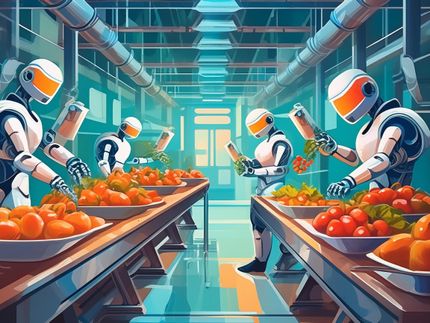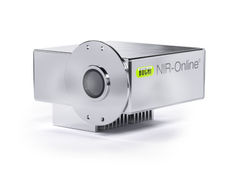Thanks to artificial intelligence: ALDI tests cashierless store in Utrecht
Digitalization must support our core strategy and make purchasing even easier for our customers
ALDI Nord is opening a new store concept in the Netherlands in early 2022. There, the discounter is testing under real conditions how artificial intelligence (AI) can make shopping even easier for customers.

ALDI store in Utrecht, Netherlands
Unternehmensgruppe ALDI Nord
Every day, ALDI North makes it easy for customers to shop at ALDI stores. A focused assortment reduced to the essentials, clearly structured store concepts and simple processes, which should lead to fast procedures without long waiting times, especially at the checkout. In order to become even better in this area, ALDI North is testing an alternative to classic checkout systems and is making targeted use of the advantages of digitalisation and artificial intelligence.
A new ALDI store in the city centre of Utrecht will manage without a checkout from the beginning of 2022. All customers need to do is use the QR code of a customer app to check in and out. Everything else will be taken care of by sensors in the shelves and the camera technology used in the store, which records all shopping movements in the store and assigns them to the right customer. Finally, fast communication with the customer app enables a completely contactless and automatic payment process when leaving the store. The smart app solution offers customers the ability to manage their shopping histories, request necessary refunds or provide feedback on their purchases. "Digitalization must support our core strategy and make shopping even easier for our customers," says Kashif Ansari, Chief Strategy Officer at ALDI Einkauf SE & Co. oHG.
Gain insights on possible applications in the discount store
The discounter is being supported at the test store in Utrecht by the company Trigo. The technology company develops AI-supported infrastructure for retail stores: "We are very proud to work with ALDI because the brand stands for innovation in food retailing. Thanks to the technology used in the store, customers can shop conveniently while ALDI gets a better overview when it comes to merchandise availability," explains Michael Gabay, Co-Founder and CEO of Trigo.
The twelve-month test under real-life conditions in one of the 500 or so ALDI stores in the Netherlands is intended to show the extent to which the automatic payment process simplifies processes for customers and employees. On the other hand, important findings are to be obtained on future possible uses of the technology in the discount store. The city centre location is ideal for testing the system with a high customer frequency during the day. For these reasons, more employees than usual will be deployed in the new store in Utrecht, as many new processes will be implemented. It goes without saying that all data protection standards will be complied with. For example, the intelligent technology ensures that facial data is filtered out directly and not processed.
Note: This article has been translated using a computer system without human intervention. LUMITOS offers these automatic translations to present a wider range of current news. Since this article has been translated with automatic translation, it is possible that it contains errors in vocabulary, syntax or grammar. The original article in German can be found here.
Other news from the department business & finance
These products might interest you
Most read news
More news from our other portals
See the theme worlds for related content
Artificial intelligence (AI) for food and beverages
Artificial intelligence (AI) is optimizing the food and beverage industry through automated quality control and more accurate demand forecasting. AI plays a particularly important role in product development by analyzing taste preferences and market trends. This allows new products to be developed that are better tailored to consumer needs, increasing efficiency and customer satisfaction.

Artificial intelligence (AI) for food and beverages
Artificial intelligence (AI) is optimizing the food and beverage industry through automated quality control and more accurate demand forecasting. AI plays a particularly important role in product development by analyzing taste preferences and market trends. This allows new products to be developed that are better tailored to consumer needs, increasing efficiency and customer satisfaction.
































































